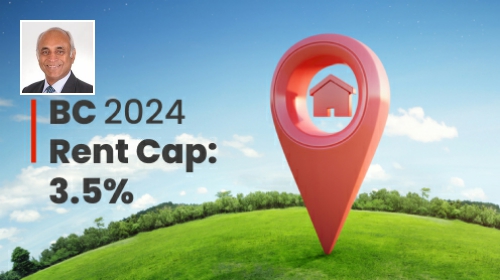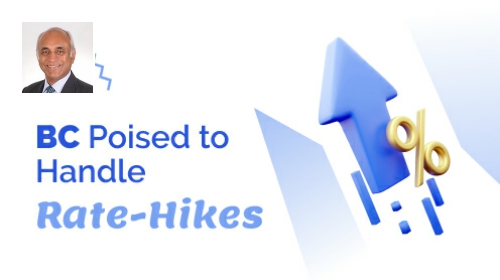Naru Menon’s Blog
-

BC 2024 Rent Cap: 3.5%
The maximum allowable rent increase is 4%, the highest level since 2018. While also being set below the inflation rate of 5.4% for the second year in a row. The rental cap of 3.5% will apply to rent increases with an effective date on or after Jan 1, 2024.
-

Best Mortgage Rates In B.C. For October 2023 – Forbes Advisor Canada
In October 2023, Nesto, Dominion Lending Centres, The Mortgage Centre, and Island Savings are offering some of the best mortgage refinancing rates in the market, with rates significantly below the national average. All these services offer competitive rates and closing timelines, though they are not disclosed. Continue to full article
-

More rental buildings may be going up in Coquitlam’s City Centre – The Tri
Anthem Inlet Street Holdings is proposing to build 197 units in two rental buildings at 1184 Inlet St. in Coquitlam. City council is expected to give first reading to the rezoning bid tonight, Oct. 16, 2023. If approved, this development would bring in $4.1 million in development cost charges, $492,700 in community amenity contributions, $4,000…
-

BC Poised to Handle Possible Rate-Hikes
The BC market is expected to remain strong despite possible future interest rate hikes. The term “potential rate hikes” refers to potential increases in the BOC's interest rates. The industry association expresses confidence in the market's ability to withstand rate hikes.
-

Letters to The Province: Short-term rental properties should be taxed like hotels
Short-term rentals are unfairly competing with the hotel hospitality business, leading to job losses and a shortage of hotels in cities like Vancouver. To tackle the climate emergency, the world needs to rapidly phase-out fossil fuels and make polluters pay. Canada needs to take action to stop fossil-fuel subsidies, prevent companies from weakening climate legislation,…
-

As inventory increases, price gains relent in Metro Vancouver to begin the fall season
In September 2023, Metro Vancouver's housing market saw abated price gains due to a seasonal decline in sales and a modest increase in inventory levels, which was driven by a reluctance of homeowners to list their homes due to high mortgage rates. New listings rose back to the 10-year average, allowing inventory levels to recover…
-

Northern BC: Slump in 2023, Optimism for 2024
BCREA forecasts housing activity in Northern BC to remain flat in 2023. The region is predicted to have 3,600 unit sales this year, ↓ 16% yearly. Economists expect prices in Northern BC ↑ 4.8% in 2024 after a flat 2023.
-

How To Buy A Home With No Money Down In Canada
First-time homebuyers can take advantage of mortgage options that require little money down to become homeowners sooner. The national average home price is $650,140, so the minimum down payment would be $40,014. If the down payment is less than 20%, mortgage loan insurance from one of three lenders is required. If the down payment is…
-

BC Renters Pay More Despite Getting Fewer Amenities Included
British Columbia is one of Canada's most expensive rental markets. A recent Statistics Canada study revealed that 7 in 10 Canadian renters have water and municipal services included in their rent. ~33% of renters receive electricity, and ~50% do not pay extra for parking.
-

Decline in BC Housing Starts Expected
BC housing construction facing downturn amid escalating challenges.Banking institutions' hesitancy further complicates construction financing. Rising costs for building materials and mortgage rates hinder new projects.